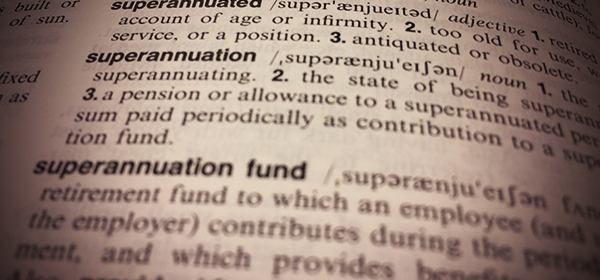The superannuation industry is singing the praises of the Turnbull Government, as the PM attempts to enshrine in legislation a definitive objective for super in order to pave the way for a more sustainable system.
Yesterday, the Government announced that the objective of Australia’s $2 trillion superannuation system will be enshrined in legislation, in response to recommendations made in the Financial Systems Inquiry (FSI), led by former Commonwealth Bank of Australia boss David Murray.
It is hoped that the enshrinement of super’s objective will open talks on how to create a more sustainable superannuation system in the future – one that leads back to the original intention of superannuation being a means for people to have more money in retirement.
“The government accepts the Financial System Inquiry’s recommendation that the objective of the superannuation system is to provide income in retirement to substitute or supplement the Age Pension,” said Assistant Treasurer Kelly O’Dwyer. “In other words superannuation has a very practical purpose, it should be used to increase self-sufficiency in retirement. It is not intended to be a support for the accumulation of wealth that can be passed down to subsequent generations.”
Whilst the Government is taking into account the recommendation of the FSI for the main purpose of super being to “provide income in retirement to substitute or supplement the Age Pension”, it is now accepting proposals for the wording of the objective in a move to ensure that any changes made to the system are well-informed and consistent over time.
“The simpler and clearer we can be around the objective the better able we are to meet that objective,” said Ms O’Dwyer. “People plan a long time for their retirement. These are policies that are put in place for a period of time which is why we want to get some consistency around the way that we treat superannuation.”
In theory, the objective will inform potential tweaks to superannuation tax concessions and will hopefully lead to greater efficiencies and increased transparency in, and better governance of, the superannuation system. It may also lead to lower fees for consumers.
Industry Super Australia also welcomes the Government’s commitment to enshrine the objective of super in law.
“Clarifying a definition in law, once and for all, should allow policy makers, regulators and the industry to get on with the single-minded job of ensuring the community’s super savings are invested securely for the long term and delivering the best possible returns,” said Chief Executive of Industry Super Australia David Whitely. “Hopefully, it will also help to liberate superannuation policy from the constant unhelpful political tinkering that comes with the Budget and election cycles. This will help build public confidence in the system.”
Read more at the Australian Financial Review
Opinion: Let’s just get on with it
Indeed, the Government should be commended for taking this first step towards making the superannuation system fairer for all. And enshrining a definitive objective of super in law is a necessary, and intelligent, move towards making this happen. But wasn’t the objective of compulsory industry super, plainly laid out when it was first introduced by Treasurer John Dawkins in 1992? Wasn’t it set up to provide retirees with more money for a comfortable retirement?
‘The increased self-provision for retirement will permit a higher standard of living in retirement than if we continued to rely on the Age Pension alone. The increased self-provision will also enable future Commonwealth governments to improve the retirement conditions for those Australians who were unable to fund adequately their own retirement incomes.’ (superannuation guarantee bill 1992).
So, as our resident retirement guru Kaye states, “Either the link to provision of funding specifically to provide an income in retirement was not made clearly enough, or has been misunderstood or misinterpreted since.”
The fact remains that, due to a ‘liberal’ interpretation of this objective, most of the benefits of the current system go to the wealthiest 20 per cent of households or, in other words, those who would not otherwise require access to an Age Pension. Tax concessions and means testing really only help out those who need it least. A revision of the system will not only make it fairer for all and, although the superannuation system is largely funded by individuals and employers, it should also relieve some pressure from the Government to fund our retirement income system of the future.
Now, the current definition obviously allows for the accumulation of wealth that, according to many, isn’t fairly taxed. Those who have flaunted these tax rules can’t be blamed for taking advantage of a system that is clearly geared towards taking such liberties. But if these tax concessions come at the expense of the Age Pension, well, that just isn’t fair, intelligent or sustainable.
To “set clear objectives for the superannuation system” was just the first recommendation made by the FSI. Now it’s up to the Government to produce a new definition and make the necessary legislative changes so it can finally get on with making our retirement income system fairer and more sustainable and to protect the Age Pension so it remains a right, and not a privilege.
Once the ‘right words’ are defined, the Government should stop talking and take action to make super fair for all. They should begin by addressing the overly generous tax concessions that obviously favour wealthy Australians. This is a good start, now, let’s just get on with it.
Do you think the objective of superannuation needs rewording? Is this a good first step towards making the superannuation system fairer for all? Or is it just more political side-stepping to avoid the necessary policy changes that need to be implemented?
Related articles:
The Age Pension bunfight
Retirement: the risk is all yours
The super-dooper spin
Super benefits for the rich ‘obscene’

